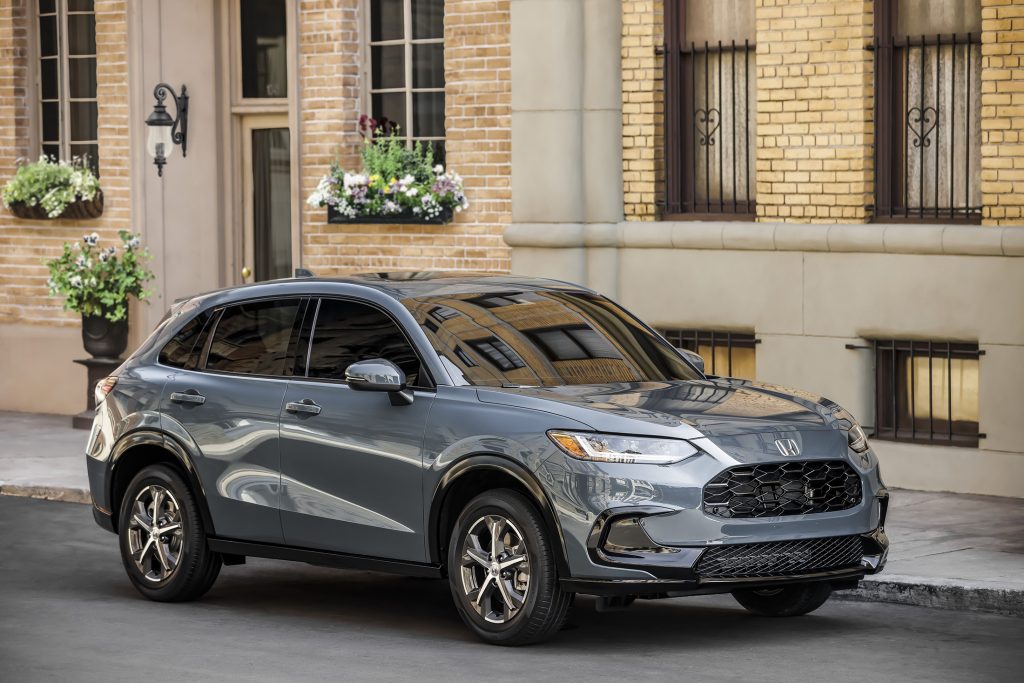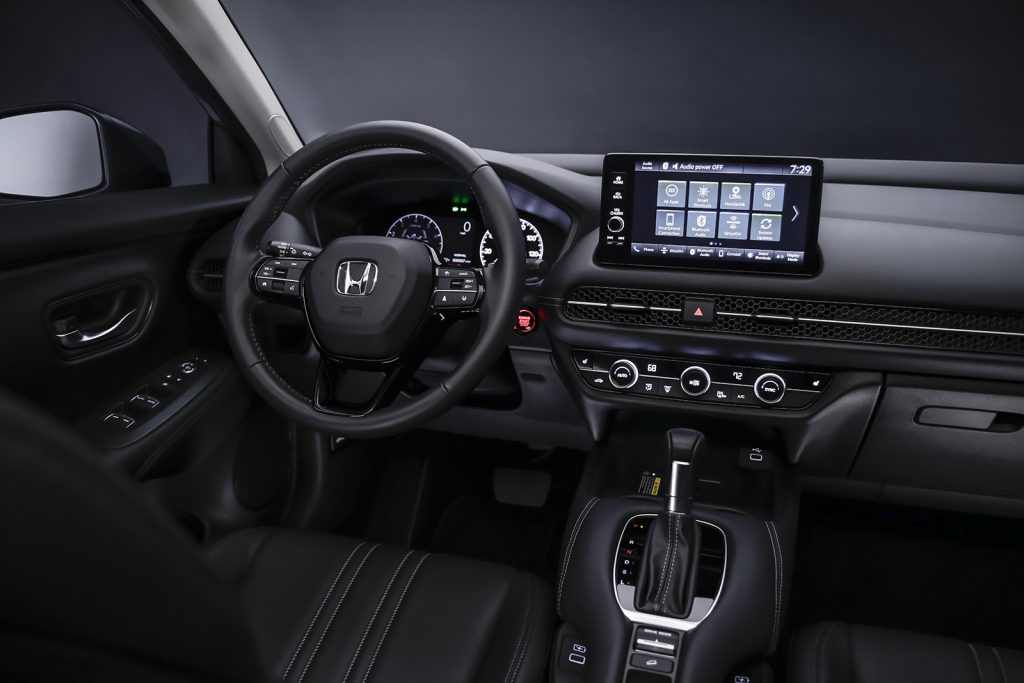Cargazing
By Derek Price
Not only is it a whole lot bigger than the outgoing HR-V — 2.5 inches wider and nearly 10 inches longer – but it looks and feels like a totally different vehicle.
Considering it’s built using a different platform, one it shares with the excellent Civic, that’s no surprise. The 2023 HR-V drives with a quiet, comfortable sophistication that the old model lacked. It also looks more interesting with a mixture of soft, rounded curves and an upright, truck-like stance that’s so popular on the newest crossovers.
One thing that didn’t change is its attitude when you press the gas pedal.
The new HR-V’s 2.0-liter, 158-horsepower engine feels reluctant to accelerate, and you have to spend a lot of time with the pedal mashed to the floor to confidently merge at freeway speeds.
A continuously variable transmission doesn’t help the experience, letting the engine wind up and belt out a lingering, uncomfortable wail at high RPMs.

Honda’s smallest crossover, the HR-V, is completely new for 2023. It’s nearly 10 inches longer and has a more truck-like stance than before, albeit with soft, rounded edges.
To be fair, everything else about the new HR-V is the opposite: very comfortable. It doesn’t pretend to be a sports car, which is refreshingly honest in a segment that bafflingly tries to make every vehicle “sporty” and “aggressive,” something that makes no sense for everyday driving.
The HR-V makes a lot of sense.
The new cabin is spacious for its class and cavernous compared to the old HR-V. It’s also dramatically quieter thanks to proper sound insulation, active noise cancellation, a solid design and a suspension that gently sops up bumps and vibrations. It drives like the struts are filled with soft, fluffy Wonder Bread.
The steering feels perfectly weighted in corners. It delivers enough feedback to make you feel connected to the road, a longtime Honda hallmark.

The redesigned HR-V’s cabin is one of the most spacious in its class. Its dash is centered around a large touchscreen and follow’s contemporary trends toward a minimalist, simple design.
Its newfound size makes the cargo area dramatically bigger than before, now with 24.4 cubic feet of cargo space. It’s one of the largest in its class.
It also offers decent gas mileage of 32 mpg on the highway with front-wheel-drive or 30 when you opt for all-wheel drive.
Closely connected to all those logical things is something that can’t be evaluated on a test drive: the worth of the Honda name.
This brand has a reputation for bulletproof reliability and holding its value on the used-car market, and this new HR-V feels like it’s built with the classic, supremely solid Honda quality that should make that hold true once again.
I wish every crossover felt this rock-solid, right down to each switch and trim piece on its modern, minimalist dash.
Pricing reflects that Honda premium, with starting prices just a bit higher than its Korean and American competitors. It starts at $23,650 for the LX model with front wheel drive and tops out at $28,950 for the EX-L with all-wheel drive.
At A Glance
Wheelbase: 104.5 in.
Length: 179.8 in.
Width: 72.4 in.
Height: 63.8 in.
Engine: 2.0-liter four cylinder (158 hp, 138 lbs. ft.)
Transmission: Continuously variable
Fuel Economy: 25 city, 30 highway
RATINGS
Style: 9
Performance: 3
Price: 8
Handling: 6
Ride: 7
Comfort: 7
Quality: 10
Overall: 7
Why buy it?
This all-new generation of the HR-V is built on the Civic platform that makes it bigger, quieter and more comfortable. The Honda name gives buyers peace of mind, too.
